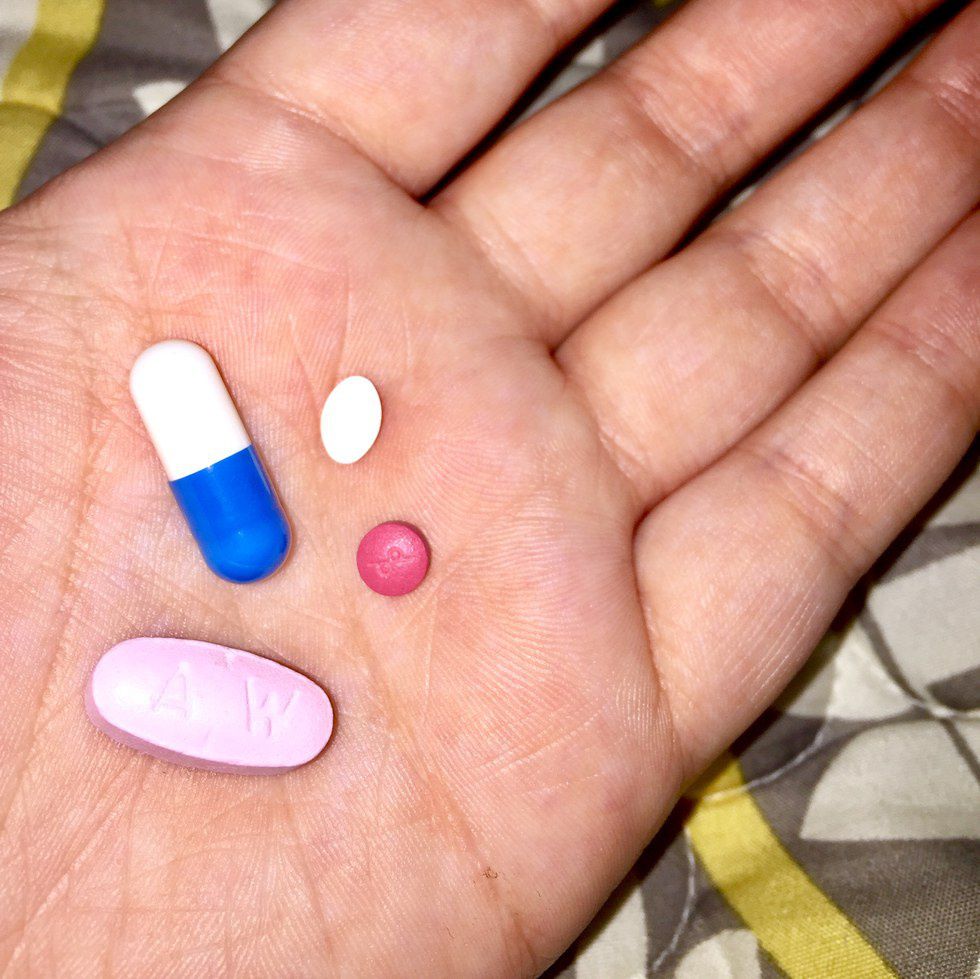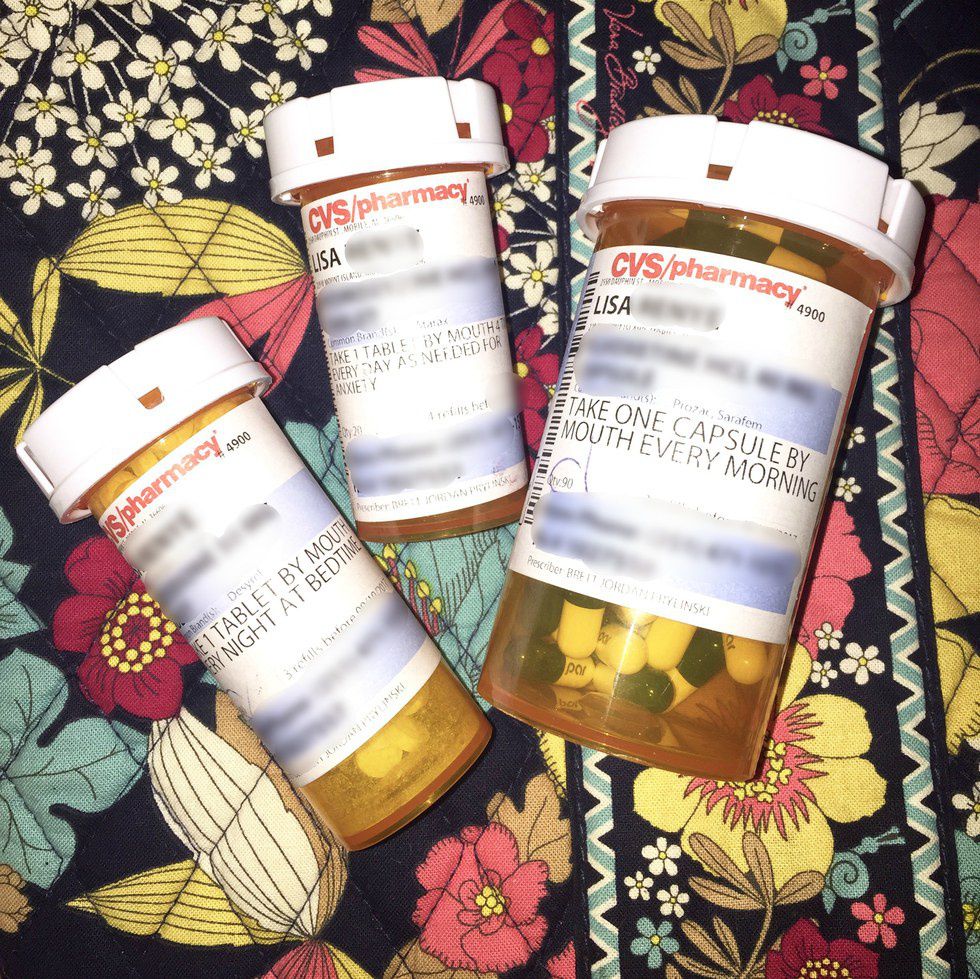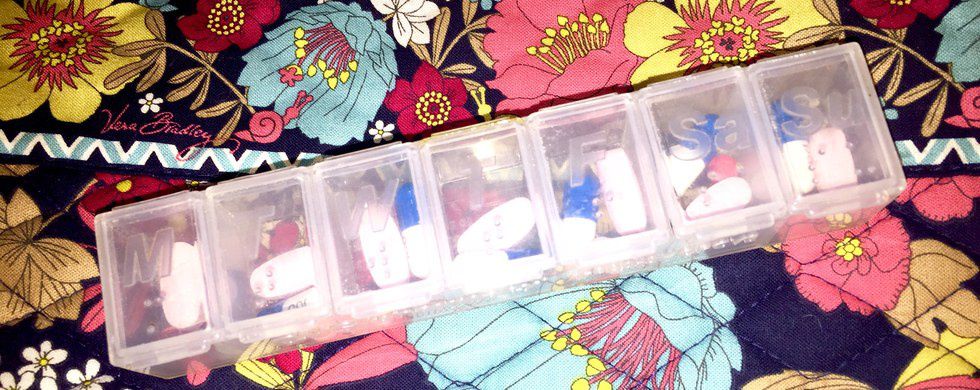To be honest, I've never seen the reason for a stigma around medication and treatment, especially for mental illness. If you truly care about someone, why wouldn't you want them to get help that makes them feel better and more functional? I think that something legal, viable, and helpful would be a positive in any healthcare scenario. Despite my own beliefs on the subject, there has become a somewhat universal stigmatization of medication and treatment of mental illness. Although there were many barriers along the way, I have been able to be open and honest about my diagnoses, my medication, and my overall health.

So why am I so open? Why do I believe my medical information should not be so privatized or hidden? Well, I want to be an open book. Not just about my health, but about my experiences, my feelings, and my life. This has, over the years, proven to be a great stepping stone to helping others. When you are open about yourself, others will be open with you, and the help they've needed for so long but have been too ashamed to ask for is within reach, finally. I cannot tell you how many people I've been able to speak to about their quality of life, their struggles and secrets, and the answers they've been seeking all along--just by being open and honest about my own life.
When someone sees me taking my daily medications, they are often curious, or sometimes straight up nosy. It's a given, of course, that I open myself up to this by taking my medications in places like my classroom before class starts, on my break at work, or when I grab a bite to eat with a friend. Sometimes they ask, "Are you sick?" Well, the answer isn't that simple. I have diagnoses of depression and anxiety, along with allergies and trouble sleeping. I try to answer in the most understandable way possible, letting them know that I take medications for my mental health to make me 100% functional, to help me be my true and whole self, and to sometimes just to get through the day. People are often taken aback by my unabashed and sincere honesty, but it's who I am, and I'm not ashamed of it. No, it doesn't make me feel like a zombie. i did in fact, try a medication that made me feel worse, suicidal even, so I did have to change medications a few times to make sure I didn't feel "off" or uncomfortable. I definitely see why you ask, and I hope that anyone you knew who has been through that tried other medications before giving up. Most importantly, no, I don't use them to feel better than normal. I need these medications just to feel the way most people feel on a regular basis, it doesn't make me high or elevated in mood. Just stable and comfortable.
I also tell people about my experiences with counseling, therapy, and a singular but terrifying instance when a bad reaction to steroids led to a short stint in an inpatient mental health facility. The more I talk about the things I've experienced, the more I find that there are others like me that interact with me on a daily basis who have been through some of the same things. As many with mental health diagnoses know, having a support system and a network of people to share and grow with is essential. I hope that those who have opened up to me have felt the same boost in confidence and security that I feel knowing there are others out there like me, moving through their day, facing the same invisible demons I do, and still succeeding.
Many people with think this article is oversharing, and many people think the same when I tweet about my daily struggles with anxiety or mention a therapy appointment casually. But you know what? If you can talk about the flu shot you got today or seeing your doctor to be treated for a cold, I can talk about my mental health treatment. These things keep us healthy, happy, and protected, and should be seen as such. Mental health is correlated with and just as important as physical health, and once people can come to terms with that and just be supportive of their friends and family getting help, the world will be a better place.
If you feel that you could be helped by mental health testing, diagnosis, or treatment, please seek help from a healthcare professional. Keep in mind that your health is the most important thing, regardless of stigma. Visit the U.S. Department of Health & Human Services website to learn more about mental health, seeking treatment, and even supporting friends and family who are struggling with mental health diagnoses.









 mr and mrs potato head
StableDiffusion
mr and mrs potato head
StableDiffusion










